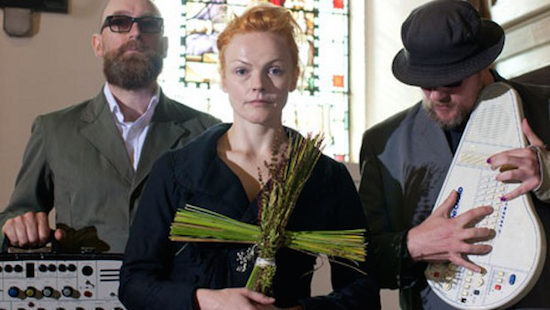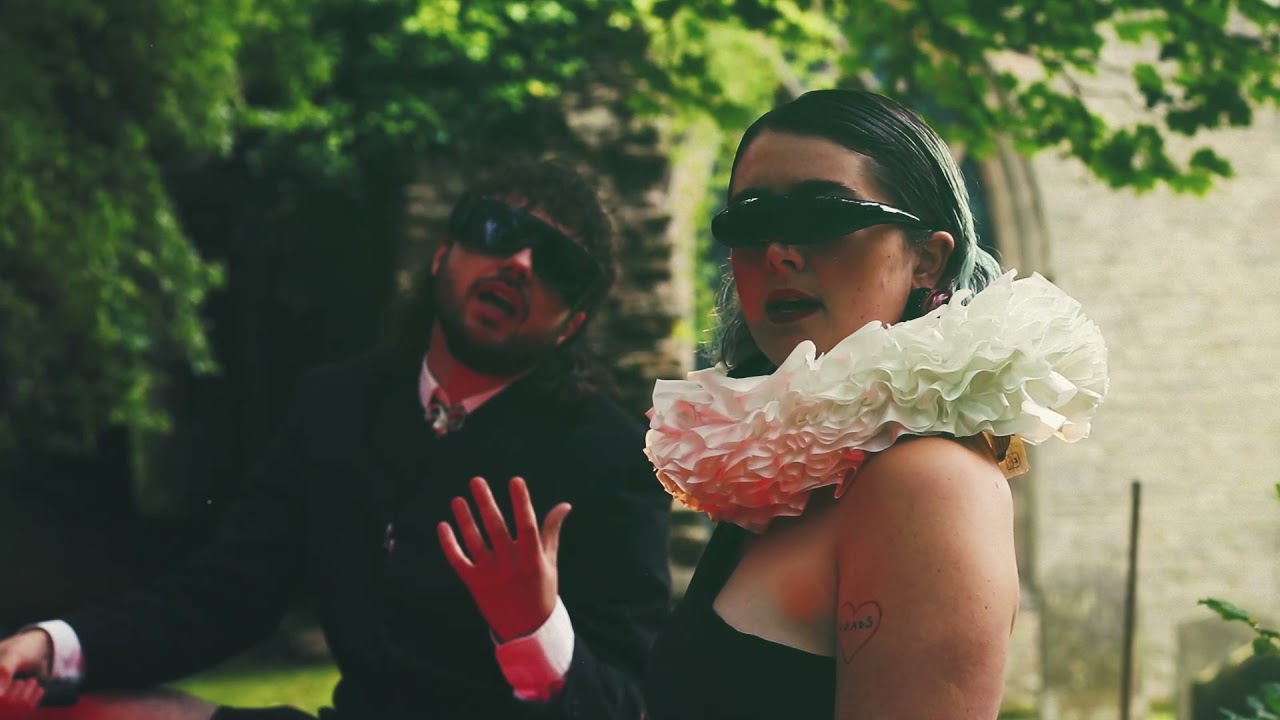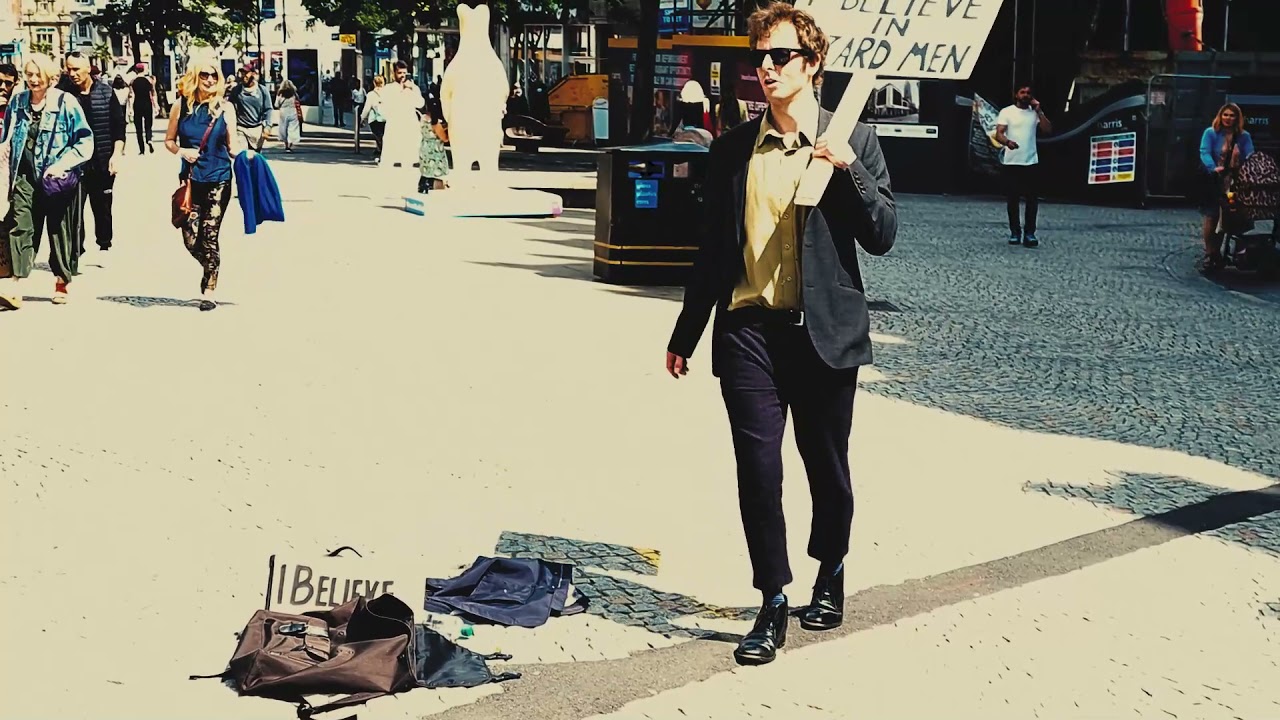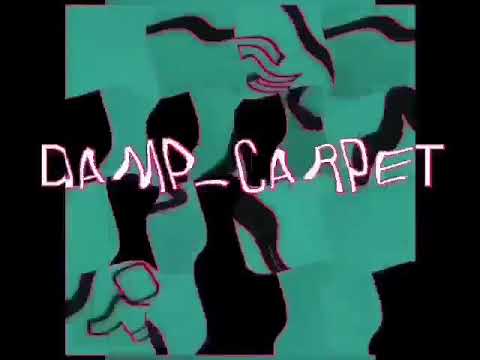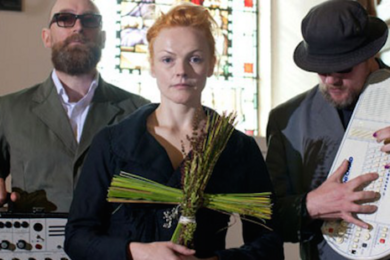Eccentronic Research Council, the project of Sheffield artists Adrian Flanagan and Dean Honer, are launching their own DIY label, Desolate Spools.
The first release, a compilation titled Eccentronic Research Council Presents: Wayward Freaks From Synthetic Streets Volume 1, features a cast of all-new "eccentric" electronic music artists who were invited to work at the band’s analogue-heavy recording studio in Sheffield. ERC also contribute their own track to the release, alongside frequent collaborator Maxine Peake. You can listen to that song just below.
To mark the label’s launch and the first release this month, ERC will be putting on a pair of label showcases, featuring performances from compilation contributors Wet Man, DIMITRI, Damp Carpet and South Yorkshire Mick Hucknall. They will take place at London’s The Social on November 12 (with additional Lias Saoudi DJ set) and Sheffield’s The Shakespeare on November 13 (with the Outernational Yorkshire DJ collective joining).
You can find more information about the compilation, which will be released digitally and in a limited cassette edition, via Eccentronic Research Council’s Bandcamp page. Keep reading below for an extensive set of interviews between ERC’s Adrian Flanagan and a number of the new artists featured on the release, as well as videos to accompany their tracks.
Desolate Spools will release Eccentronic Research Council Presents: Wayward Freaks From Synthetic Streets Volume 1 on November 12, 2021.
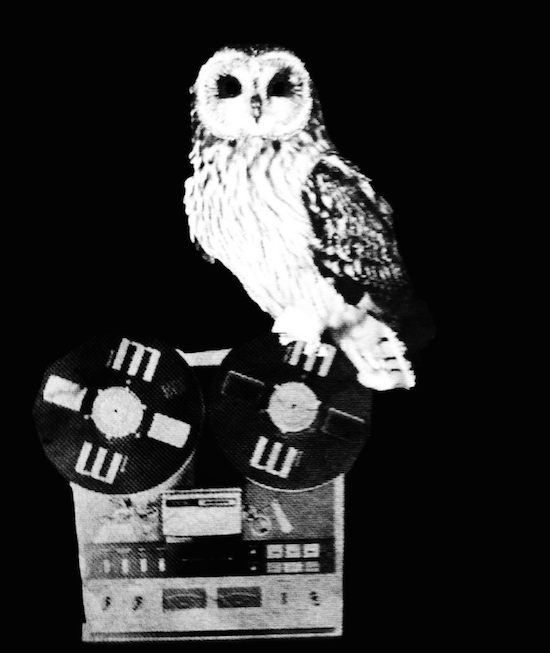
ADRIAN FLANAGAN & DEAN HONER
Desolate Spools prides itself on working with fresh eccentric electronic pop artists. Can you tell us a little bit about the process of putting this compilation together?
Dean Honer: Adrian found the artists and sent all the songs over to me. I knew some of the artists already, but had never heard any music by most of them. The next step was selecting the tracks we liked, and then to try to produce them up a bit so that they worked together as a coherent album. I think all the tracks were originally recorded in home studios.
Adrian Flanagan: Yeah, I slid in to a few DMs and made people offers that they couldn’t actually understand. I promised that as a label we were going to put a silver spoon in their mouths and for at least 24 hours they were gonna feel more special than they ever felt before. I’ve not gone back on my promise but my mum wants her cutlery back! In all seriousness, I know what it’s like to float around for years without really anyone giving you a break or letting you in to the secrets of the so called music industry. Certainly if you’re a little ‘odd’ or don’t fit in to any kind of trendy London-centric music scene you don’t really ever get a look in. That’s why I thought it a good idea we start our own little scene and record label of oddballs and musical misfits.
Dean’s got a great studio and, over the past decade, me and him have produced together quite a lot of critically acclaimed and culturally rich records with very little or no industry backing, so we thought it would be good to try and help a few new likeminded artists to be at least heard, even if it’s just to shine a little light on people – or be a little stepping stone to something bigger.
On the opening ERC track you ask, where have all the eccentric pop artists gone?
DH: Sheffield has always been the home of electronic synthetic music and sounds of the future, from Cabaret Voltaire through to the Human League and Warp Records, and on to Adrian’s and I’s various incarnations. We kept the synthetic flag flying even through the lean times of the Sheffield guitar rock era spawned by Arctic Monkeys and their progeny. Now it seems like the synth is back, but to us it never went away.
AF: My favourite pop music, or music in general, was always made by genuine eccentrics or at least eccentric front people, and there seems to be a distinct lack of those kind of artists now. If they ever rear their head, it’s seemingly done by some kid who’s just left St. Martin’s or Brit School where they get taught and encouraged to walk around with a Breville toaster on their head whilst caterwauling like bloody Kate Bush. It was certainly part of Desolate Spools’ agenda to reel in some loveable fruitcakes.
You are hosting a couple of Desolate Spools launch events in the coming weeks. Tell us more about those.
AF: Yes, I thought it might be fun to do an almost Dadaist take on those old ’60s live revue shows and showcase some of these new eccentric electronic fiends we have been bestowed with. So we are just gonna have this Eastern European crooner compère called Dimitri chatting and singing in-between the acts and then let loose the rest of the un-table trained folks. My pal Lias Saoudi from The Moonlandingz and Fat White Family will be DJing at the London show too, and he’s got heavily in to acid house and juicing, so if that isn’t enough to entice the naysayers I don’t know what will.
GOD HOLE
God Hole is the solo moniker of New York resident and outsider artist, Christy Graff.
Why did you choose the alias God Hole?
Christy Graff: It came from an episode of It’s Always Sunny In Philadelphia, one of my favourite comedies. A character said that he has a "god hole," an emptiness in himself that many people fill with religion, but since he doesn’t believe in God, he wants to fill it with pussy. It really spoke to me.
Can you give us a little bit of background on you and tell me about your track ‘All Things Falling Apart’?
CG: Music is the most important thing in my life, both making and listening. I can usually be found in my little cave of a bedroom playing my collection of records, lost somewhere on the streets of NYC, or sat down in a local cemetery working in my sketchbook; just trying to figure out where I fit in to this world.
‘All Things Falling Apart’ is a song I originally wrote and recorded in 2017 which had served as a final project for a music technology class in high school. This past summer, new life was breathed into it as I remade it with some changes in collaboration with Eccentronic Research Council. The song is based on my stay in a psychiatric hospital and my relationship with the mental healthcare system. Its creation was extremely cathartic. If there’s anything that can come close to being redeeming about that experience, it’s that it has been an endless spring of artistic inspiration for me.
How did you end up on a DIY label based in Sheffield?
CG: My descent into the vast world of English music scenes began around six years ago when I got hooked on Fat White Family, who naturally led me to The Moonlandingz among other bands, and through the powers of social media, Adrian [Flanagan] and I got personally acquainted. The rest is history! I think it’s a good match. This opportunity has brought me a lot of joy and renewed motivation.
DIMITRI
Dimitri is an Eastern European man of no specific location, based in the people’s republic of South Yorkshire.
The Cult of DIMITRI is palpable on the streets of South Yorkshire – strange hand signs are shown as people pass you in the street, heterosexual males offer you roses, your live shows are more like sermons for the lost and disenfranchised but with romantic melodies and an electronic beat. Why do you think you have this effect on audiences?
Dimitri: The followers of DIMITRI; the music, the man and the message, are open-minded individuals who seem to be at loggerheads with the normal grey they are presented with everyday, people who seek freedom of expression without judgement, and fans of beautifully crafted songs and merchandise. When these followers come together, they become a powerful group who enable the promotion of passion, commerce and pleasure. They are collectively known as Branch Dimitrians. It is indeed common for the heterosexual males amongst them to offer up roses during DIMITRI love songs.
Can you tell us a little about your song ‘That’s That’ and the power of the earworm? Also, who is the mysterious Rosey PM?
D: ‘That’s That’ was developed and composed as a tool for the promotion of a vision of a new future. Not the one where we are told what to do, but the one where we, the people, chose what to do. And that’s that. Rosey PM is quite simply the second most delightful person you may ever meet. She has the voice of an angel, if angels smoked Morrocan cigarettes. Whilst working behind the synthesiser, drum machine and production for one of her numbers, it became apparent that she should lend verse upon ‘That’s That’. And she did, and that’s that. An earworm was born. The earworm is a powerful tool. They cannot be planned or created but when they arrive, they are inescapable. And that’s that.
Being a European man living in Brexit Britain, do you not think that table service in pubs and bars (that was implemented during the year of the great plague) should continue?
Dimitri: One cannot solve chess solutions whilst trying to catch the eye of a bartender, and as someone who refuses to queue in public, I welcomed the shift to table service. I prefer to waste time sat at my table entering deep thought or engaged in conversation with lovers, friends and business partners. However, table service has created it’s own pandemic of sorts, the rise of the QR code. A gross artistic failing of mass proportions.
WET MAN
Wet Man is the solo moniker of Sheffield resident and odd fellow, Jack Clayton.
Why did you choose the alias Wet Man?
Jack Clayton: Growing up, I have always used the term ‘Wet Man’ to describe males with a lack of character, depth and presence. Prime examples of this can be seen in those early 2000s indie bands where they complain about their girlfriends in a whiney voice, I feel they lack power and dignity. I later realised people also used the term ‘Wet Man’ in the same way I did, and that it was a common phrase to those who despise the takeover of predominantly white, middle class males who are the majority in the music business. I like having a turn of phrase as a title, like ‘The Buzzcocks’ which is basically like calling yourself the bollocks. I use Wet Man as its self-deprecating to me; I show you vulnerability, weakness and despair, and no its not ‘wet’ music, I just want to also draw your attention to what a ‘shit business’ it can be. Subsequently, my ex once called me ‘wet man’ when we had a tiff, so I suppose I’m claiming ownership.
I can hear influences such as late ’70s Cabaret Voltaire and early ’00s Fat Truckers in your music, and that gnarly synth sound seems to be an almost generational thing that comes back in to music from Sheffield every 10 years. Is it true your dad played in Cabaret Voltaire for a short while?
JC: I have an unhealthy obsession with old Sheffield groups as were mentioned in Martin Lillikers’ book Beats Working For A Living, as well as having a wealth of original bootleg style singles of obscure Sheffield groups that I used to sneak on the record player while my parents were at work. One that struck me was the Cabaret Voltaire song ‘Nag Nag Nag’, which I believed was the coolest record I had ever heard. In my twenties, my father very modestly mentioned that he played bass for them for a few shows, and there are some photographs of him performing with Stephen Mallinder and Richard H. Kirk at The Leadmill in Sheffield. It’s weird seeing someone who looks like me playing with such musical heavyweights, yet not only did he play in the Cabs for a bit, he was in a group called Artery who inspired a young, impressionable Jarvis Cocker. I don’t know if it’s egotistical to say that this sound is in my blood and I could be the last descendant of this scene, but it probably explains my distaste for the mundane and the twee.
Your track ‘I Believe In Lizard Men’ is very ‘of the times’
after the past 18 months of enduring dodgy politicians, stoned indie singers spending too much time on YouTube and falling in to a sink hole of conspiracy theories, and, in general, the world going a bit doolally. Do you think the irony of this song will be lost on the ‘Ickettes’ of the world?
JC: I am baffled that even people close to me have said that the coronavirus has been a conspiracy. I find, even as an advocate of freedom of speech, it is an argument devoid of logic. I also find it offensive as people have died and surely they should feel ridiculous saying this stuff to grieving families. I think it’s a sign that as a populous we are vulnerable to implication. I feel David Icke is a dangerous individual, as is Rupert Murdoch. Feeding lies on a mass scale to the vulnerable is manipulation and will drive people to deep rabbit holes of paranoia, despair and isolation. This is the very reason David Icke is on the top of my hit list and hopefully he doesn’t read this article as I genuinely want the ‘Ickettes’ to have ‘I Believe In Lizard Men’ as their anthem while unbeknownst to them pointing out how ridiculous these claims are. Although however unlikely, if it is all true and Barack Obama is a lizard, I will eat my own hands.
ADULT ENTERTAINMENT
Adult Entertainment are Salford’s Strange Quarter resident, artist, musician and lyricist Chazza Cartwright, alongside fellow Salfordian, Adrian Flanagan.
Tell us about your best out of body experience?
Chazza Cartwright: I’m barely in my body – right now I have convinced myself that I’m a tiny tree. I’d say, for me, it was playing keys for a live improvised set with Damo Suzuki. That definitely took me into floating in to the corner of the roof, peering at myself. Just one of those music moments when you pure lose yourself to a mountain fire of enjoyment. From childhood this guy was one of my biggest inspirations. I remember feeling my blood and only my blood.
You and your partner ‘in grime’ (me) Adrian Flanagan are seen up north as the Bridget Bardot and Serge Gainsbourg of twilight psychic dance music and, with that in mind, what song would you ask the DJ to play at ‘peak twilight’?
CC: This all depends on me nut at the time, but most likely ‘4 Floors Of Whores’ by Tzusing.
Your lyrics for Adult Entertainment are like an opaque, surreal and sensual dream cum-nightmare playing out in real time, but are also often very funny and pointed. Who are your favourite writers / what are your favourite books?
CC: Henry Miller and Argos catalogues.
DAMP CARPET
Damp Carpet is the moniker of the lyrically dour and musically sweet Micky Milky Graham – an eccentric person who lives on a boat off Canvey Island, Essex.
You’re a gentleman that lives upon a boat. How long have you lived on there for and what do you find are the benefits? Also, what laws can be broken on water that can’t be broken on land?
Micky Milky Graham: I’ve lived on my boat for over a year now; it’s a lawless place that I won’t name through fear of reprisals. I’m not sure on water laws; I just break all the good ones regardless. The solitude is the best thing and the quiet (except when they’re worshiping the sea gods by sacrificing sea life).
You have a glorious mutton-chop moustache often sported by Victorian gentleman to prove their masculinity to ‘on-coming’ suitors. What is the most manly thing you have ever done?
MMG: My most manly act was breastfeeding my cat for charity, though I think my cat kept the money.
You have a a lovely and dour song called ‘Northern Motion’ – what is it about?
MMG: The perils of wet floors and the importance of a highly absorbent mop head.

